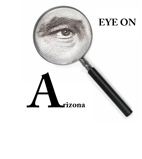 Arizona doesn’t have a traditional “sales tax” – instead, Arizona imposes a transactions privilege tax (“TPT”) on the sale of tangible personal property and certain services. However, the TPT is the equivalent of a sales tax in almost all respects.
Arizona doesn’t have a traditional “sales tax” – instead, Arizona imposes a transactions privilege tax (“TPT”) on the sale of tangible personal property and certain services. However, the TPT is the equivalent of a sales tax in almost all respects.
Similar to my last two blogs on Alabama and Alaska, Arizona is a “home rule” state. However, there is some good news as Arizona is in the process of eliminating the need to file separate returns in each home rule jurisdiction. Following is the formal guidance on this topic from the Arizona Department of Revenue:
|
Currently, taxpayers are required to comply with both the state laws and home rule jurisdiction laws until January 1, 2016. This means separate registration/licensing efforts with the state and home rule jurisdictions. Another important factor to consider is that the taxability of certain products and services may be different between the state and the home rule jurisdictions (i.e. something exempt from the state TPT, might be subject to a home rule TPT).
Generally, Arizona is a complex state from a TPT/Sales tax perspective – forcing taxpayers to comply with both state laws and different local laws. In most states, the applicability of the sales tax is the same at the state and local levels. While the registration and reporting will soon be consolidated/simplified, taxpayers will continue to have to determine the taxability of their products and services at both the state and local levels.
Stay tuned for more of Jeff's EYE ON series as he blogs about sales and use tax State by State.







.png?width=1200&height=628&name=2023%20logo%20with%20SOC%20and%20clearly%20rated%20(2).png)